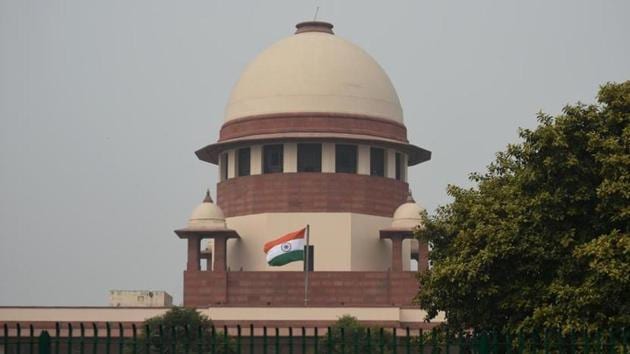Law should not be used to selectively harass people: SC
The decision came on an appeal filed by Goswami and two others against a November 9 order of the Bombay HC declining bail.
Courts have to ensure that criminal law should not be used to selectively harass citizens, the Supreme Court said on Friday, explaining the reasoning behind its November 11 judgment granting interim bail to Republic TV editor-in-chief Arnab Goswami in an abetment to suicide case.

Delivering the verdict, justice DY Chandrachud also explained that its decision was influenced by a prima facie reading of the FIR, which did not establish his role in the suicide, and also a chain of events that resulted in the suspicion that the state was targeting a citizen. Justice Indira Banerjee was the other judge on the bench.
Both the promptness with which the top court heard the case, and the judgment itself, came in for some criticism when it was delivered, with several senior lawyers and experts saying the same benchmark isn’t being applied to other cases.
In its judgment, the bench was also harsh on the Bombay high court and said that it was “clearly of the view that in failing to make even a prima facie evaluation of the FIR, the high court abdicated its constitutional duty as a protector of liberty.”
It added that “the doors of this court cannot be closed to a citizen who is able to establish prima facie that the instrumentality of the state is being weaponised for using the force of criminal law. Deprivation of liberty even for a single day is one day too many”.
The decision came on an appeal filed by Goswami and two others against a November 9 order of the Bombay HC declining bail. On November 11, this bench ordered release of all accused on bail and recorded the reasons in a 55-page judgment issued on Friday.
The allegation against the trio was that they owed sums of money ranging from ₹55 lakh to ₹4 crore to designer Anvay Naik for professional services. Naik died by suicide in May 2018 and left a suicide note naming the three persons. Goswami’s company owed Naik ₹83 lakh. The Bombay high court had previously refused Goswami and the others interim bail.
The SC said in its judgment that “the appellants are residents of India and do not pose a flight risk.... There is no apprehension of tampering of evidence or witnesses. Taking these factors into consideration, the order dated November 11 envisaged the release of the appellants on bail”.
The observations come ahead of a crucial hearing in the Bombay high court which will take up Goswami’s petition seeking quashing of FIR on December 10. Legal experts said that the SC’s observation on the FIR in its judgment are bound to weigh on the high court.
Senior advocate Sanjay Hegde said, “Courts normally do not make such observations. But this was a matter where detailed arguments were made. The observation by the Court will certainly have a substantial bearing on the high court although the judges have been careful in saying that this view is prima facie. The high court may not necessarily be guided by this view if prosecution is able to produce evidence. However, I prefer to see this judgment in the larger context where bail is seen as a matter of right and not indulgence by courts.”
Goswami through his lawyer, senior advocate Harish Salve, contended that the state was targeting him for criticising the Maharashtra government and state police in his television debates. Salve said that Goswami was arrested on November 4 despite the fact that the investigation in this case ended in April 2019 when a closure report was submitted to the trial judge. It was on October 15 that the police communicated its decision to reinvestigate the FIR before the concerned court, he said.
The Bombay HC on November 9 refused to grant bail to Goswami.
Linking bail to personal liberty, the SC bench said that high courts should not foreclose itself from exercising power under Article 226 when a citizen has been arbitrarily deprived of personal liberty in an excess of state power.






